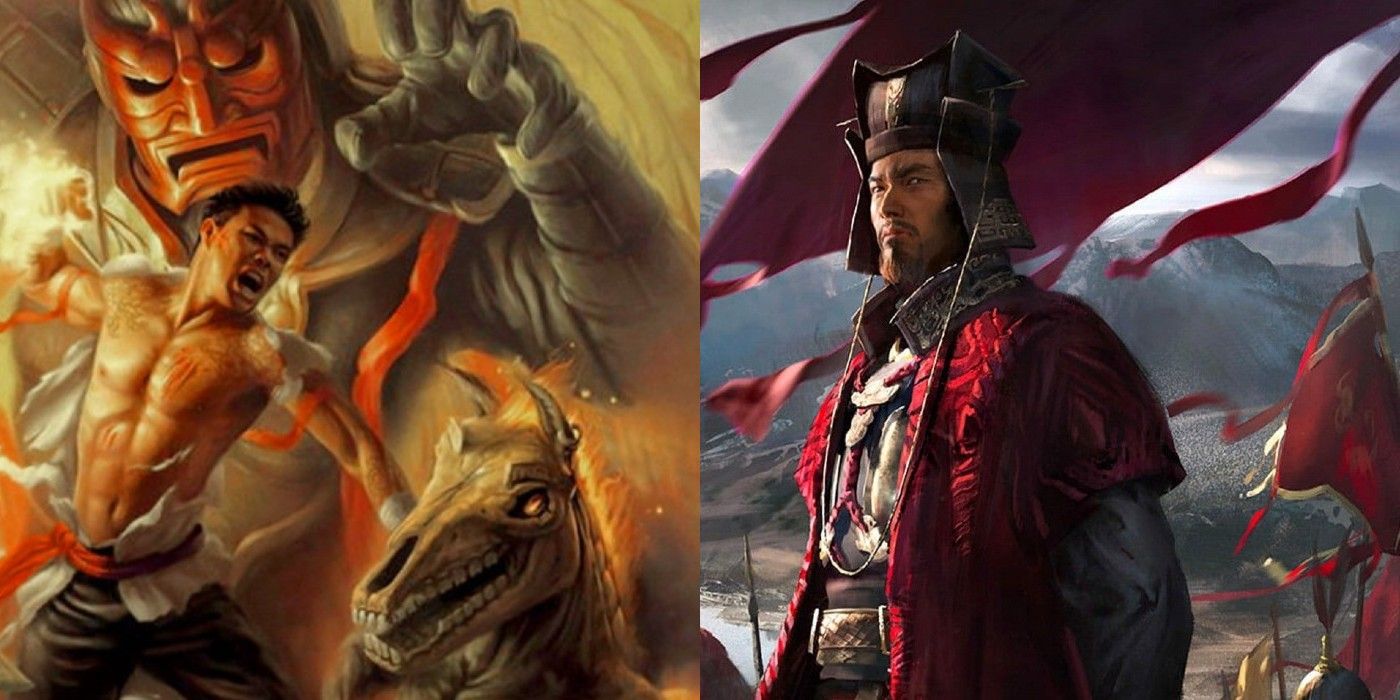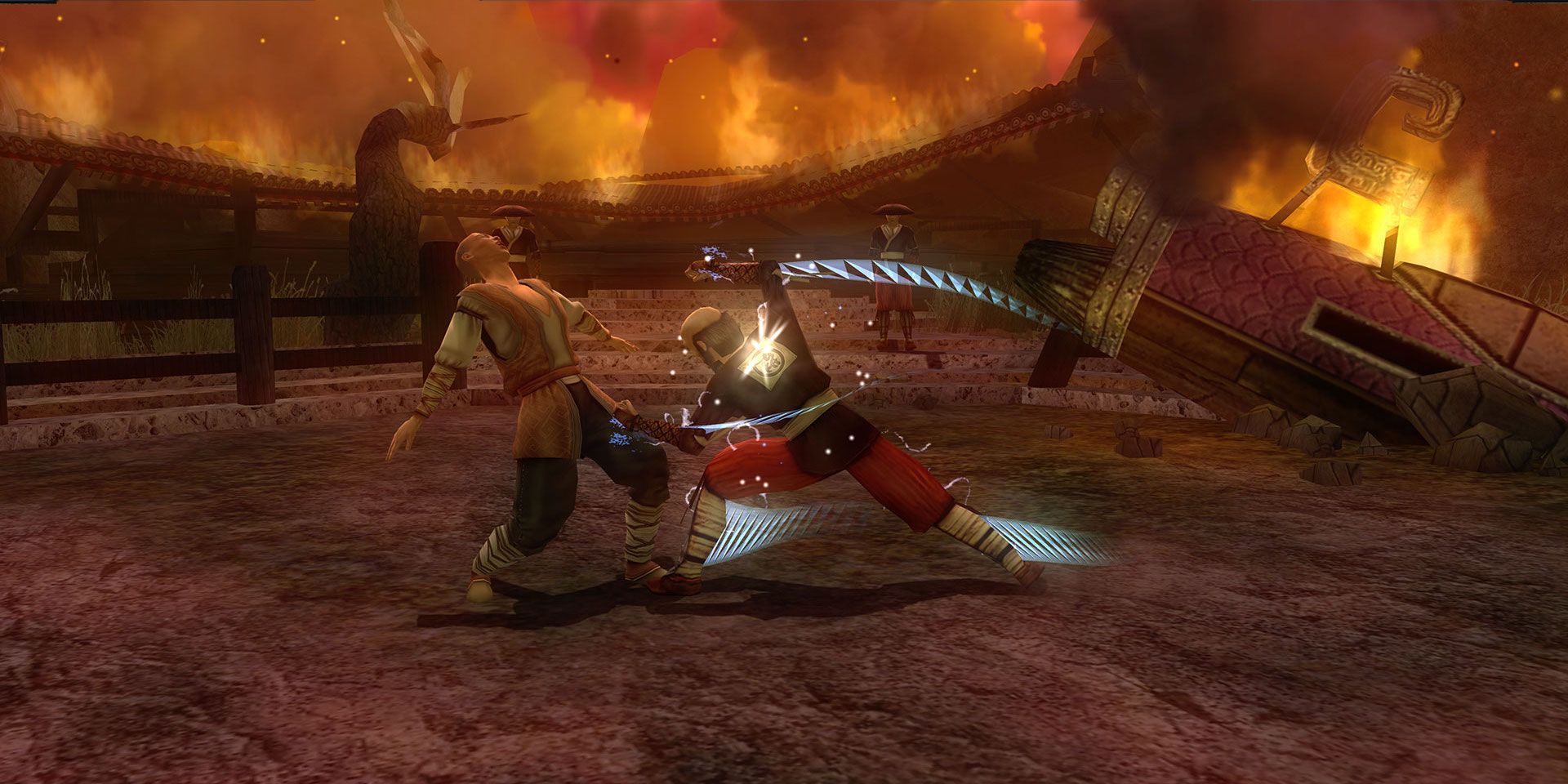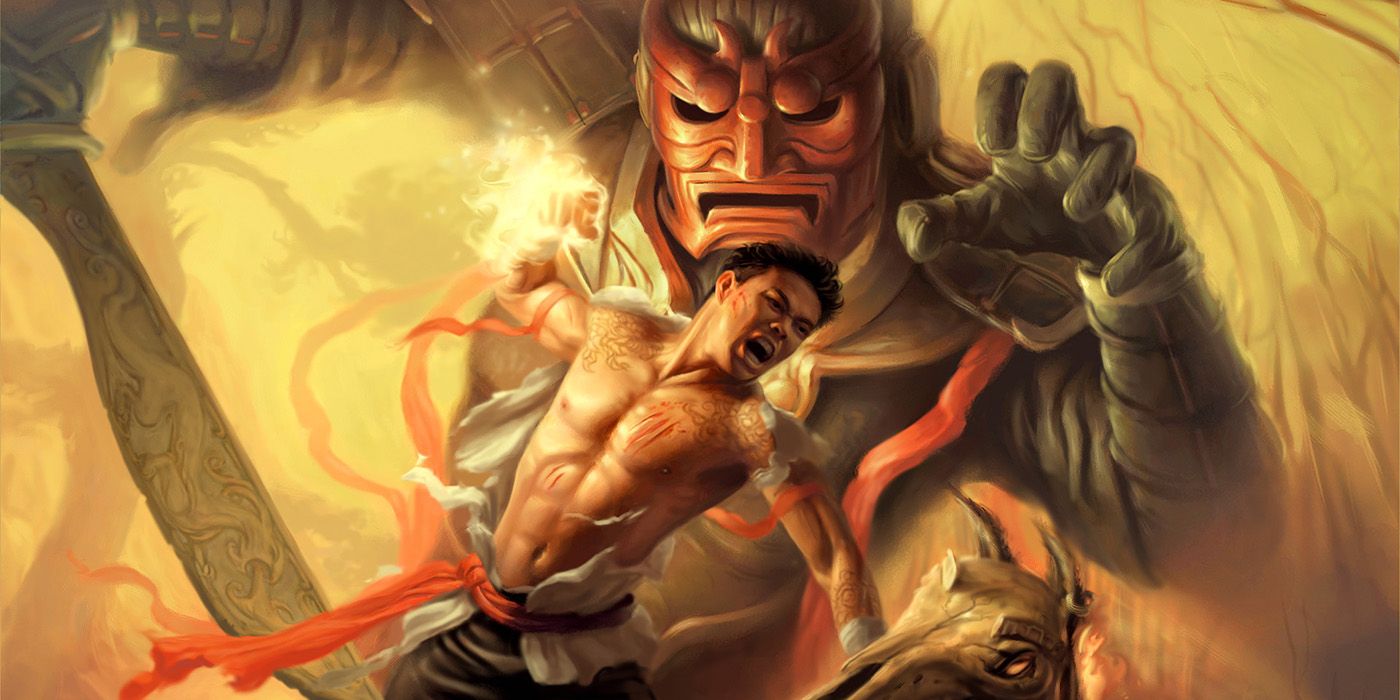Among Bioware's original video game IPs (the Mass Effect space opera franchise, the dark fantasy Dragon Age RPG series, and so on) Jade Empire stands out for having a martial arts-focused combat system and a colorful setting inspired by the heroic fiction of Chinese culture; the various fighting styles players of Jade Empire can master draw inspiration from the pugilist heroes of Wuxia fiction, the cosmology of spirits and celestial bureaucrats in the game world homages Journey To The West, and the theme of empires rising and falling homages the epic Chinese novel called Romance Of The Three Kingdoms. Indeed, any Jade Empire sequel released by Bioware would likely have a plot based around the collapse or fracturing of the titular Jade Empire, leading to a Three Kingdoms-style narrative where heroes both brave and ambitious try to build a new empire in their own image.
The notion of cycles, be they of nature or history, lies at the heart of Jade Empire, a 2007 eastern fantasy action RPG and one of the first original-setting games made by Bioware. The seasons change, empires rise and fall, and souls live and die under the guidance of the divine Water Dragon and her ghost-banishing Spirit Monks. The main villain of Jade Empire, a scion of the imperial dynasty, annihilates the Spirit Monks in order to capture the Water Dragon and absorb her power - a heresy that breaks both the cycles of history and reincarnation (much like the villains in Avatar: The Last Airbender). The protagonist of Bioware's Jade Empire RPG, a martial arts prodigy and last of the Spirit Monks, comes of age in a land tyrannized by the empire's sinister Lotus Assassins and plagued by mad ghosts unable to pass on to the afterlife. The protagonist's wise old mentor sends the player on a mission to retrieve an artifact of power, defeat the evil god-emperor, and restore balance to the land...but this classic hero's journey is not what it seems.
As one of the four great classics of Chinese literature, the novel Romance Of The Three Kingdoms also explores the theme of cycles in its story, opening with the following quote: "The empire, long divided, must unite; long united, must divide. Thus it has ever been." The narrative of Romance Of The Three Kingdoms, loosely inspired by the historic collapse of the Han Dynasty, focuses on the battles, deeds, friendships, and betrayal of warlords, generals, and strategists who seeks to reunite the divided lands of China on their own terms. The original Jade Empire drew some inspiration from the plot and characters of Romance Of The Three Kingdoms (particularly with the characters known as Sun Li, the Glorious Strategist); if Bioware ever makes a sequel to Jade Empire, the studio may draw much more inspiration from Romance Of The Three Kingdoms.
In Jade Empire, The Empire Is Destined To Fall And Be Replaced
The ghost of the Water Dragon, the divine goddess who governs reincarnation in the world of Jade Empire, appears before the player multiple times throughout the main story campaign of the RPG, each time revealing tidbits of information about the cycles of reality and the schemes of the game's villains. The most interesting piece of lore the Water Dragon shares is exactly why the Emperor Sun Hai and his brothers sought to steal her power and slaughter her order Spirit Monks. Their empire (like the Han Dynasty from both the Dynasty Warriors franchise and Chinese history) was suffering from a severe drought that threatened to tear it apart, and the Water Dragon's power could influence the flow of water and rain as well as the transmigration of souls; as malevolent as slaughtering a priestly order and defiling their goddess was, the actions of the Sun brothers brought an end to their empire's drought and gave it a new age of prosperity.
As late-game events reveal, however, the renewed prosperity of the civilization in Jade Empire is not sustainable. The rich rainfall Emperor Sun Hai bestows on his lands causes other countries to go parched, and the cycle of reincarnation the game's main villain broke will soon cause the earth to be overwhelmed with trapped, increasingly insane ghosts. Furthermore, the spirit of the Water Dragon suggests the titular Jade Empire needs to eventually "fade so that something new would bloom." In the good endings of Jade Empire, the player character releases the Water Dragon from her imprisonment and restores the broken cycle of reincarnation; this saves the land from its plague of ghosts, but theoretically also renders the empire vulnerable once more to collapse, or at least a long period of civil strife. To paraphrase the opening line of Romance Of The Three Kingdoms, "The empire, long united, must divide."
A Jade Empire Sequel With A Civil War Would Challenge Players's Morals
As the spiritual successor to Star Wars: Knights Of The Old Republic, a Bioware RPG that let players become a benevolent Jedi or power-hungry Sith, Jade Empire attempted to introduce a moral choice system with more nuance and complexity than the Light Side vs. Dark Side dynamic of the Star Wars setting. The Way Of The Open Palm was an altruistic philosophy centered around helping and protecting others (at the risk of becoming a smothering tyrant), while the Way Of The Closed Fist emphasized the selfish virtue of seeking strength (while also encouraging others to grow strong themselves). In practice, the Open Palm moral choices in-game came across as good and the Closed Fist choices came across as cartoonishly evil, mainly because the Closest Fist choices in Jade Empire were too mean-spirited to be justifiable.
A Jade Empire sequel with warring factions a-la Romance Of The Three Kingdoms (or Fire Emblem: Three Houses) would be a much better venue for Bioware developers to challenge players with morally complex choices. Each of the warring factions in such a game could have their own mixture of heroes like Zhuge Liang and Guan Yu along with their own mutually incompatible moral creeds; depending on the choices players make, players could reach different game endings based on the factions they support, or potentially reach a Golden Ending (a-la the Triangle Strategy RPG) where the disparate philosophies of each faction are reconciled.



